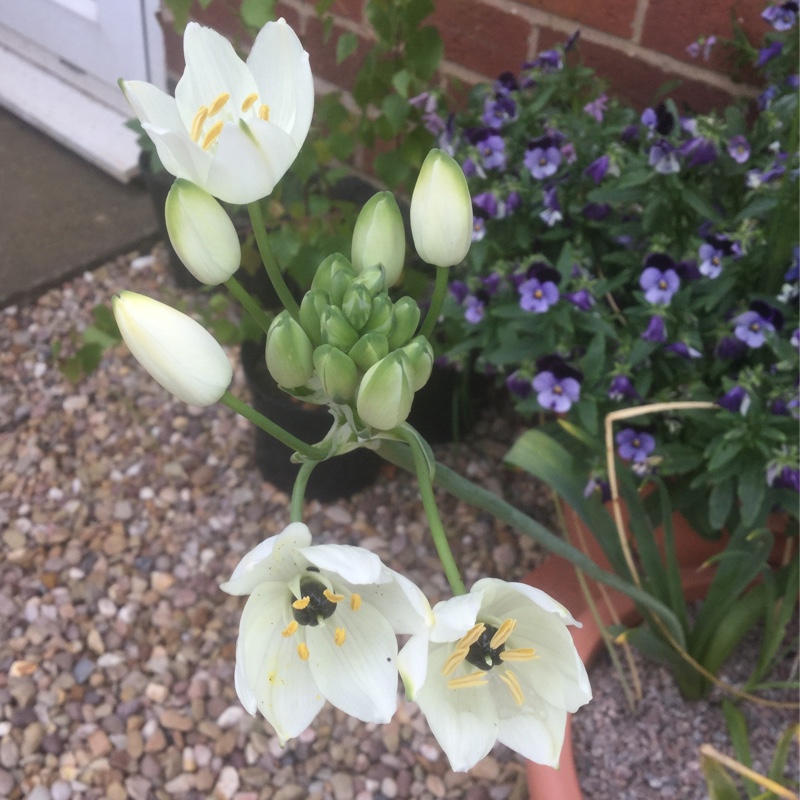
Ornithogalum arabicum
Arabian Star Flower
Ornithogalum umbellatum is a deciduous, erect bulbous perennial with linear green leaves. It bears open heads of star-shaped white flowers with green undersides. Ornithogalum arabicum - Arabian Starflower - has clusters of fragrant white flowers with black centres.
Contributed by @helmside
-
Full sun to partial shade
-
Occasional watering
-
Full Frost Hardy: 5F (-15°C)
-
Moist and free draining
Common name
Arabian Star Flower
Latin name
Ornithogalum arabicum
type
Bulb
family
Asparagaceae
ph
5.6 - 7.8 Acid - Neutral
Plant & bloom calendar
-
Best time to plant
full grown dimensions
 0.10 M
0.45 M
0.10 M
0.45 M
Ornithogalum arabicum
Ornithogalum umbellatum is a deciduous, erect bulbous perennial with linear green leaves. It bears open heads of star-shaped white flowers with green undersides. Ornithogalum arabicum - Arabian Starflower - has clusters of fragrant white flowers with black centres.
Planting Season
From Late Autumn TO Late Autumn
Plant in late autumn in a partially shaded position. These plants are perfect for woodland planting. The soil should be fairly light and well drained.
Propagation by Offset Division
From Late Summer TO Early Autumn
After dead heading and when foliage has died, lift the bulbs. Remove the soil from the bulbs and remove any offsets that appear damaged or diseased. Separate the remaining bulbs and when they are dry, store in a dark well ventilated space. Bulbs can then be replanted in late Autumn.













